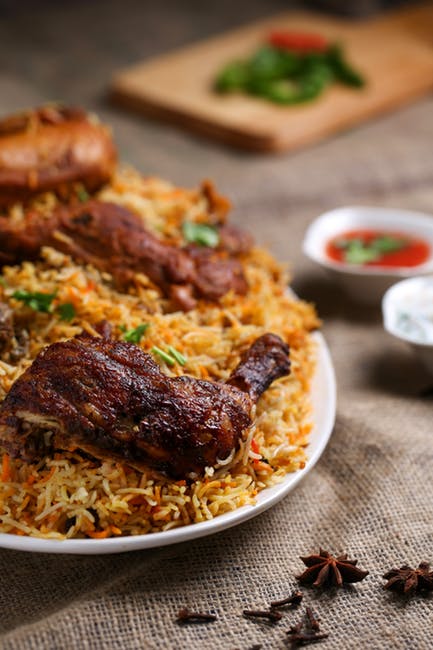
Traveling the world is an enlightening venture that many people work hard to experience at some point in their lives. When you hop aboard a plane and reach your destination, though, you have to be careful.
New countries bring new foods, new bacteria, and new forms of illness. While, if you have the travel bug, you should certainly get out and explore the world, you should be aware of ways to prevent food poisoning.
We’re going to tell you how to prevent food poisoning while traveling, hopefully helping you avoid being bedridden for long periods of your trip.
How to Prevent Food Poisoning While You’re Abroad
We’ll cover ten key points to remember when you set your sights on traveling abroad.
While you can’t always prevent getting a foodborne illness, there are ways that you can significantly reduce your chances of getting sick. Take some notes, follow up with research on points you don’t fully understand, and let’s get started:
1. Know Country-Specific Concerns
Take a look at the countries you’ll visit on your trip and make yourself aware of the dietary concerns that exist there. There are certainly general rules to apply throughout all of your travels, but specific countries or regions may have more concentrated issues.
While there aren’t typically nationwide food concerns for travelers, things do come up at times. It’s wise to do research on each country you’ll travel to and see if there are any current dietary concerns listed.
Interestingly, a lot of the countries that are cited as the most food-poisoning-prone are some of the most traveled to.
Countries like Spain, Turkey, and Egypt all rank among the top. These aren’t third-world countries, but ones that you probably wouldn’t think twice about traveling to.
So, be sure to do your due diligence, even if you’re confident that you’ll probably avoid food poisoning in a popular, developed country. The Center for Disease Control typically lists relevant health concerns to world travelers on their site.
2. Look for Hot & Steamy Foods
When you’re out and about, try to seek out restaurants that display hot foods. Steaming, boiling, and frying are all good signs that bacteria are being cooked out of the food you’ll buy.
We often get sick from vendors and food-carts that have food sitting for long periods of time. You might have good luck with particular vendors, but it’s best to stick to hot, steaming foods if you’re in new terrain.
Also, look out for foods that are fried or deep-fried, because that means that the food has been cooked at temperatures that kill harmful bacteria.
3. Go Where the Locals Go
Places that have a high volume of customers are typically good choices. There’s a reason that the restaurant is so busy.
At the very least, you can be sure that people aren’t getting sick there, or that there isn’t a reputation of the food causing food poisoning. Another reason that popular or busy restaurants won’t give you food poisoning is that they’re turning over more food.
The fact that the place is cooking constantly means that there isn’t food sitting on a heating rack, allowing bacteria to live and grow. The food will be fresh and tasty, with little chance of giving you any sort of food poisoning.
4. Check a Few Hygiene Boxes
Different countries have different customs when it comes to the handling of food. Some places accept grabbing and transferring food with bare hands, while others may take every precaution to not touch food.
If people are using a custom, the chances are that it works and it won’t get you sick. At the same time, not all countries have the same food safety and quality assurance guides, so you can take some precautions.
You can examine specific locations for signs that they’re being more or less hygienic:
First, look to see if dishes are being cooked to order, meaning that they are made fresh when you ask for them. Dishes that are pre-made tend to sit for long periods of time, leading to an increased possibility of sickness.
When food is pre-prepared, make sure that it is stored with food covers. Any kind of cover is a good thing, so long as the food is not exposed to open air for a long time.
A few other things that should boost your confidence are hair nets, sinks, and protective gloves.
5. Drink Purified Water
Water is the source of the most food poisoning to travelers. When possible, always lean on the side of caution when it comes to drinking water.
If you’re parched and extremely dehydrated, sure, drink what you can find. That said, do your best to avoid tap water in any foreign country. Just because people in Spain drink the tap water doesn’t mean that you should, too.
Water is home to bacteria that people of specific countries get used to and can tolerate. Foreigners (you), on the other hand, don’t have the gut biome to handle the bacteria living in the tap water of new countries.
Even if fruit and vegetables are washed in tap water, you should be wary of them if they aren’t fried. Try to drink purified water, soda, or bottled water whenever you have the option to.
If you’re going to be living in a country for a long time, you’ll have to get adjusted to the tap water eventually. It’s not worth the food-poisoning, though, if you’re just passing through.
6. Be Prepared with Medication
There are a couple of ways that you can combat food poisoning in advance, as well as while it’s happening to you.
It’s recommended that you take a daily antacid while you’re traveling to new countries. This medication enters your gut biome, decreasing your chances of getting diarrhea significantly.
Make sure that the medication contains bismuth subsalicylate (that’s a mouthful, we know), which is the important component of most popular antacids. Taking this medication daily will contribute to a stronger gut biome and better resistance to food poisoning.
7. Charcoal Tablets
In the instance that you do get food poisoning or eat a food that you’re confident will give you some kind of food poisoning on your trip, you can come prepared with charcoal tablets.
It seems strange, but many travelers swear by them. Charcoal tablets are constituted in a way that allows them to absorb a lot of the toxic elements contained in your stomach.
The absorbent properties of charcoal are utilized in the world of dental hygiene as well.
8. Boost Your Immune System Before You Leave
There are a number of things you can do on the front end of your trip as well.
Blasting up your immune system in the weeks and months before you leave can really improve your chances of avoiding food poisoning, or any travel-based illness.
Traveling can take a lot of energy out of you on a daily basis. That constant grind of new stimulation, walking, and stress partnered by great enjoyment, can set your body at a disadvantage to potential bacteria.
Working out regularly and eating a diet rich in fruits, vegetables, and nuts before you board the plane will help to boost your immune system. You should also seek out probiotic foods and drinks well in advance of the trip.
You don’t have to get too fancy with this. Simply eating yogurt regularly, or drinking a kombucha every afternoon can contribute to a significant boost in your gut health.
9. Eat in Moderation
We all know that foreign foods are extremely delicious. You’ll be hungry from long days of travel, faced with some of the tastiest foods in the world. It’s tough.
That said, days of sitting over the toilet are by no means enjoyable.
So, when you’re introducing new foods into your diet, sample them. Try them out one evening, see if you feel at all sick, then dig in a little more the next night. If you eat a whole lot of food that your body disagrees with, you could be facing a serious level of food sickness.
10. Use Your Common Sense and Instinct
You’re going to be traveling in a foreign country, vulnerable to the new terrain that you’re exploring. It’s a relatively dangerous thing to do in comparison to the ins and outs of normal life.
If you have the intention of taking on a task like that, you’re likely confident in your ability to intuit situations and make decisions on the fly. Maybe you’re deciding against walking down a dark alleyway in a foreign city, maybe you’re deciding against eating a dish that looks like it’s been sitting for a little too long.
Make sure that you trust your gut, despite what anyone says. You don’t have to eat something if you don’t want to, so keep your health in mind!
Need More Travel Tips?
Learning how to prevent food poisoning is just the tip of the iceberg when it comes to planning an amazing trip. Don’t worry if you’re feeling a little overwhelmed, we’re here to help.
Explore our site for more inspiration and guidance on your next trip abroad.


